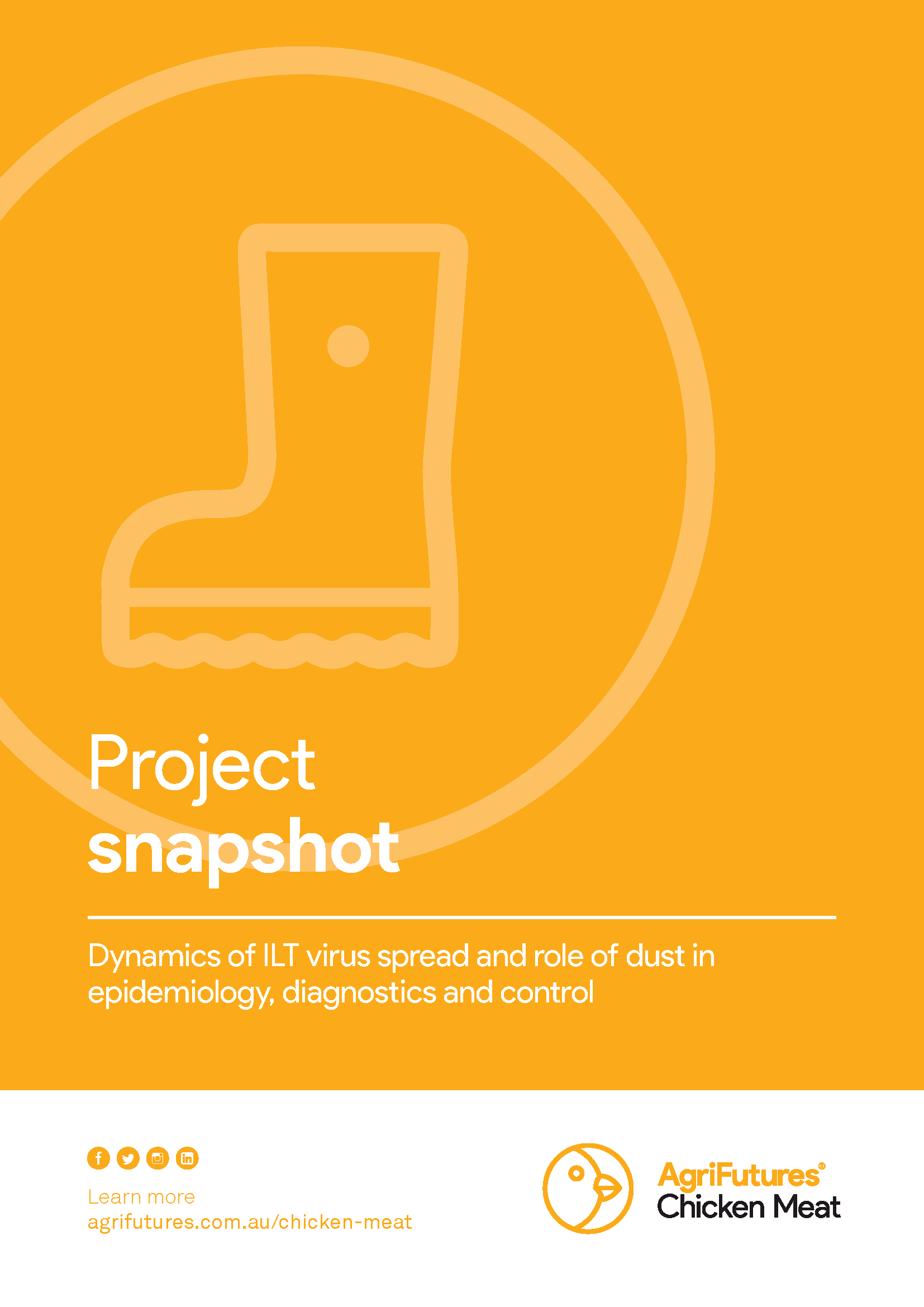Infectious laryngotracheitis (ILT) is an important viral infectious disease that is causing serious economic loss to the chicken meat industry due to ongoing outbreaks, and expensive vaccination and biosecurity measures to contain them.
This project investigated the dynamics of ILT spread and found mass vaccination in water is associated with considerable variation in methodology and vaccine virus take in the field, with some flocks achieving very poor initial take followed by spread of the virus between birds. The presence of circulating virus and the efficacy of vaccination was assessed by PCR testing of a settled dust sample collected from flocks just prior to vaccination and a week later. Such testing assisted in bringing a major outbreak in South Australia under control.
Further, the research found the virus transmits readily when birds are in direct contact with each other, with slower spread by airborne transmission only, and the disease cannot be transmitted by excreta blood or extracts of dust from infected birds, even when these samples are PCR-positive for the virus.
Strict adherence to vaccination protocols for water vaccination and adoption of routine dust testing to assess vaccination outcomes is recommended. This will minimise suboptimal vaccination and ensure improved control of the disease.





